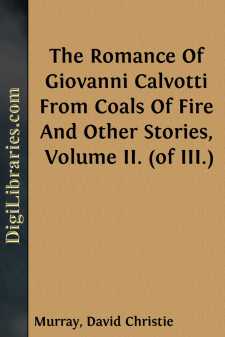Categories
- Antiques & Collectibles 13
- Architecture 36
- Art 48
- Bibles 22
- Biography & Autobiography 813
- Body, Mind & Spirit 142
- Business & Economics 28
- Children's Books 17
- Children's Fiction 14
- Computers 4
- Cooking 94
- Crafts & Hobbies 4
- Drama 346
- Education 46
- Family & Relationships 57
- Fiction 11829
- Games 19
- Gardening 17
- Health & Fitness 34
- History 1377
- House & Home 1
- Humor 147
- Juvenile Fiction 1873
- Juvenile Nonfiction 202
- Language Arts & Disciplines 88
- Law 16
- Literary Collections 686
- Literary Criticism 179
- Mathematics 13
- Medical 41
- Music 40
- Nature 179
- Non-Classifiable 1768
- Performing Arts 7
- Periodicals 1453
- Philosophy 64
- Photography 2
- Poetry 896
- Political Science 203
- Psychology 42
- Reference 154
- Religion 513
- Science 126
- Self-Help 84
- Social Science 81
- Sports & Recreation 34
- Study Aids 3
- Technology & Engineering 59
- Transportation 23
- Travel 463
- True Crime 29
My Contemporaries In Fiction
Categories:
Description:
Excerpt
I.—FIRST, THE CRITICS, AND THEN A WORD ON DICKENS
The critics of to-day are suffering from a sort of epidemic of kindness. They have accustomed themselves to the administration of praise in unmeasured doses. They are not, taking them in the mass, critics any longer, but merely professional admirers. They have ceased to be useful to the public, and are becoming dangerous to the interests of letters. In their over-friendly eyes every painstaking apprentice in the art of fiction is a master, and hysterical schoolgirls, who have spent their brief day in the acquisition of ignorance, are reviewed as if they were so many Elizabeth Barrett Brownings or George Eliots. One of the most curious and instructive things in this regard is the use which the modern critic makes of Sir Walter Scott. Sir Walter is set up as a sort of first standard for the aspirant in the art of fiction to excel. Let the question be asked, with as much gravity as is possible: What is the use of a critic who gravely assures us that Mr. S. R. Crockett 'has rivalled, if not surpassed, Sir Walter'? The statement is, of course, most lamentably and ludicrously absurd, but it is made more than once, or twice, or thrice, and it is quoted and advertised. It is not Mr. Crockett's fault that he is set on this ridiculous eminence, and his name is not cited here with any grain of malice. He has his fellow-sufferers. Other gentlemen who have 'rivalled, if not surpassed, Sir Walter,' are Dr. Conan Doyle, Mr. J. M. Barrie, Mr. Ian Maclaren, and Mr. Stanley Weyman. No person whose judgment is worth a straw can read the writings of these accomplished workmen without respect and pleasure. But it is no more true that they rival Sir Walter than it is true that they are twelve feet high, or that any one of them believes in his own private mind the egregious announcement of the reviewer. The one great sufferer by this craze for setting men of middling stature side by side with Scott is our beautiful and beloved Stevenson, who, unless rescued by some judicious hand, is likely to be buried under foolish and unmeasured praises.
It would be easy to fill pages with verifications of the charge here made. Books of the last half-dozen years or so, which have already proved the ephemeral nature of their own claim, have been received with plaudits which would have been exaggerated if applied to some of our acknowledged classics. The critical declaration that 'Eric Bright-eyes' could have been written by no other Englishman of the last six hundred years than Mr. Rider Haggard may be allowed its own monumental place in the desert of silly and hysteric judgments.
It is time, for the sake of mere common-sense, to get back to something like a real standard of excellence. It is time to say plainly that our literature is in danger of degradation, and that the mass of readers is systematically misled.
Before I go further, I will offer one word in self-excuse. I have taken this work upon my own shoulders, because I cannot see that anybody else will take it, and because it seems to me to be calling loudly to be done....












